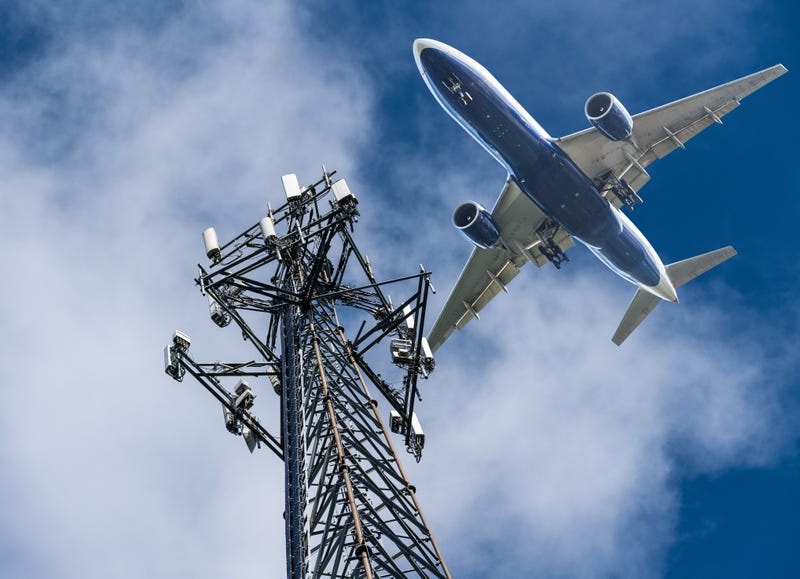
It’s great being able to access the internet or shoot a text and have no issues with connectivity, but the network that’s made that possible may now be delaying your flight.
KNX In Depth’s Charles Feldman and Rob Archer spoke with Dan Bubb, a former airline pilot, professor, and aviation history expert at UNLV, to discuss how some flights could be delayed this summer as airlines work to update radio altimeters to address potential 5G C-Band interference.
While conspiracy theorists may have accused 5G of physical harm to humans when it first appeared on the scene in 2019, there have been relatively few issues with the network until now.
Bubb explained that the issues with 5G are solely due to one piece of technology that airlines use, radio altimeters.
“With some commercial aircraft, particularly the larger aircraft… because the pilots are sitting so high in the cockpit when they come into land, it can be hard for them to see the runway,” Bubb said.
To address this issue, Bubb says that planes use the tool, as it gives pilots a countdown of how far they are from the runway. However, 5G can interfere with that tool, creating a safety hazard and much more.
“That can be very problematic, particularly when you have planes landing in low visibility conditions,” Bubb said.
So, how does 5G delay flights? Bubb says that if a plane has not been retrofitted to shield its instruments from interference, airlines will delay flights that would otherwise be fine flying in certain weather conditions.
“If you have inclement weather, where the visibility is very low, airlines could potentially delay those flights,” Bubb said.
While airlines have been working to shield their instruments from being affected by 5G, Bubb says they aren’t all finished yet, with about 20% still needing the upgrade. The retrofitting isn’t “too expensive,” but Bubb says it is time-consuming.
5G has been around for the past four years, so it seems strange that the issue is now popping up, but Bubb says it’s due to the speed at which regulators, like the Federal Aviation Administration, move.
But he also says it’s a result of airlines trying to pinch their pennies.
“I think airlines were trying to hold out as long as they could to make money before they finally had to acquiesce and install this new equipment,” Bubb said.
Part of the issue could be put on cell phone companies, as Bubb says they were quick to implement their new high-power network. Because of this, airlines could have grounds to place blame on them and receive some form of compensation, claiming they didn’t receive enough time to retrofit their aircraft before the network was launched.
Even more worrying, Bubb says that we could find ourselves in a similar situation soon if another advanced network were to be launched.
“Hopefully, we’re not back here again in a few years,” Bubb said. “Hopefully, the airlines will be able to act faster. They’ll be able to work in collaboration with the phone companies to make sure that there is sufficient time to outfit these instruments so that we don’t revisit this problem.”


